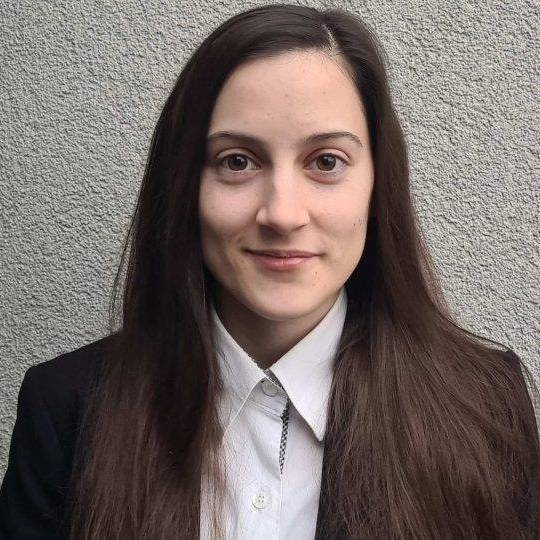The most recent February edition of the CEDMO Trends survey, published on a monthly basis by the Central European Digital Media Observatory (CEDMO), reveals a significant perception of disinformation as a national security concern among the Slovak populace. Disinformation is viewed as a serious issue by as many as 77% of Slovaks, marking the highest level since last August. In the same study, 76% of respondents identified disinformation as a threat to national security, while 39% reported feeling exposed to disinformation content. These elevated figures are likely tied to the pre-election period in Slovakia, characterised predominantly by the spread of non-factual content and the testing of societal resilience and the integrity of democratic institutions and processes.
Disinformation spread by top politicians
The rise in the aforementioned statistics may be attributed to the escalation in the volume of non-factual content emanating from politicians. This was notably observed prior to the parliamentary elections in September 2023, during which a myriad of topics were exploited for disinformation purposes. These ranged from alleged plans to dismantle political opposition and orchestrate a coup d’état to issues surrounding corruption, the rule of law, and the purported involvement of Slovak soldiers in the conflict in Ukraine.
The incessant repetition of false narratives can lead not only to an erosion of public trust in political institutions, the media, and official information sources but also to the gradual normalisation of these falsehoods, potentially culminating in a complete failure to discern factual content. Such a trend is evident today, exemplified by the false assertion that the conflict in Ukraine is confined solely to its eastern regions (a belief held by 36% of respondents, according to the CEDMO survey). This assertion has been endorsed as fact by Prime Minister Robert Fico, lending an air of credibility to certain segments of the population and reinforcing erroneous beliefs.
The upcoming presidential elections and the ongoing campaign have the potential to exacerbate the prevalence of false content within the information landscape, further eroding trust in democratic institutions and the state’s pro-Western orientation among the populace. Numerous instances of false content have emerged in response to recent political and social events, including the early months of Fico’s administration, legislative measures (such as attempts to divide the public service media RTVS and amendments to the Criminal Code), and recurring anti-government protests. For instance, the demonstrations were erroneously portrayed as pro-Russian peace calls in Ukraine, with manipulative use of footage from March 2023 presented out of context.
Likewise, among the primary narratives since the start of the year have been disinformation campaigns targeting Ivan Korčok, alleging his collaboration with the StB (the secret service of the Communist era) and falsely claiming he holds a US passport. In addition to Korčok, presidential candidate Igor Matovič has also been subjected to similar manipulative tactics. A photograph of his driving license from 1993, purportedly indicating a requirement for supervised driving, circulated within the information sphere. Initially intended as satire, this piece garnered a negative response from the audience in the form of toxic attacks and ridicule.
Artificial intelligence is becoming a problem. We are not prepared for it
Similarly, akin to trends observed abroad, instances of artificial intelligence misuse are proliferating within the Slovak information landscape. Ahead of the parliamentary elections last September, we observed an AI-generated recording featuring candidate Michal Šimečka in an interview with journalist Monika Tódová. Recently, a video of Robert Fico was misappropriated for a deepfake campaign endorsing an investment platform. While these AI fabrications are initially discernible as fake upon casual observation or listening, they nonetheless contribute to the overall erosion of public trust in consumed information. More than three-quarters of respondents in a recent CEDMO survey expressed their belief that the circulation of deep fake content in the online sphere would lead people to distrust authentic videos.
Meanwhile, instances of deepfake technology misuse to create fraudulent videos are anticipated to escalate in the future, potentially aimed at discrediting candidates or elected political representatives and shaping public opinion as desired. According to data from the CEDMO survey, there is not only a lack of preparedness for this type of persistent threat but also a limited understanding of the deepfake phenomenon, as indicated by nearly half of the surveyed Slovaks. However, four out of ten respondents reported encountering deepfake content in recent months, indicating a degree of awareness of the issue, albeit insufficient for enhancing preparedness against such content.
Deepfake manipulation is gradually becoming normalised, potentially exploited not only by domestic entities but also by Kremlin propagandists who increasingly disseminate AI-fabricated content into the European infosphere. Furthermore, such content can be adopted by already influential disinformation sources and tailored to target audiences. The ramifications could be severe, even jeopardising the fragile state of Slovak democracy.


